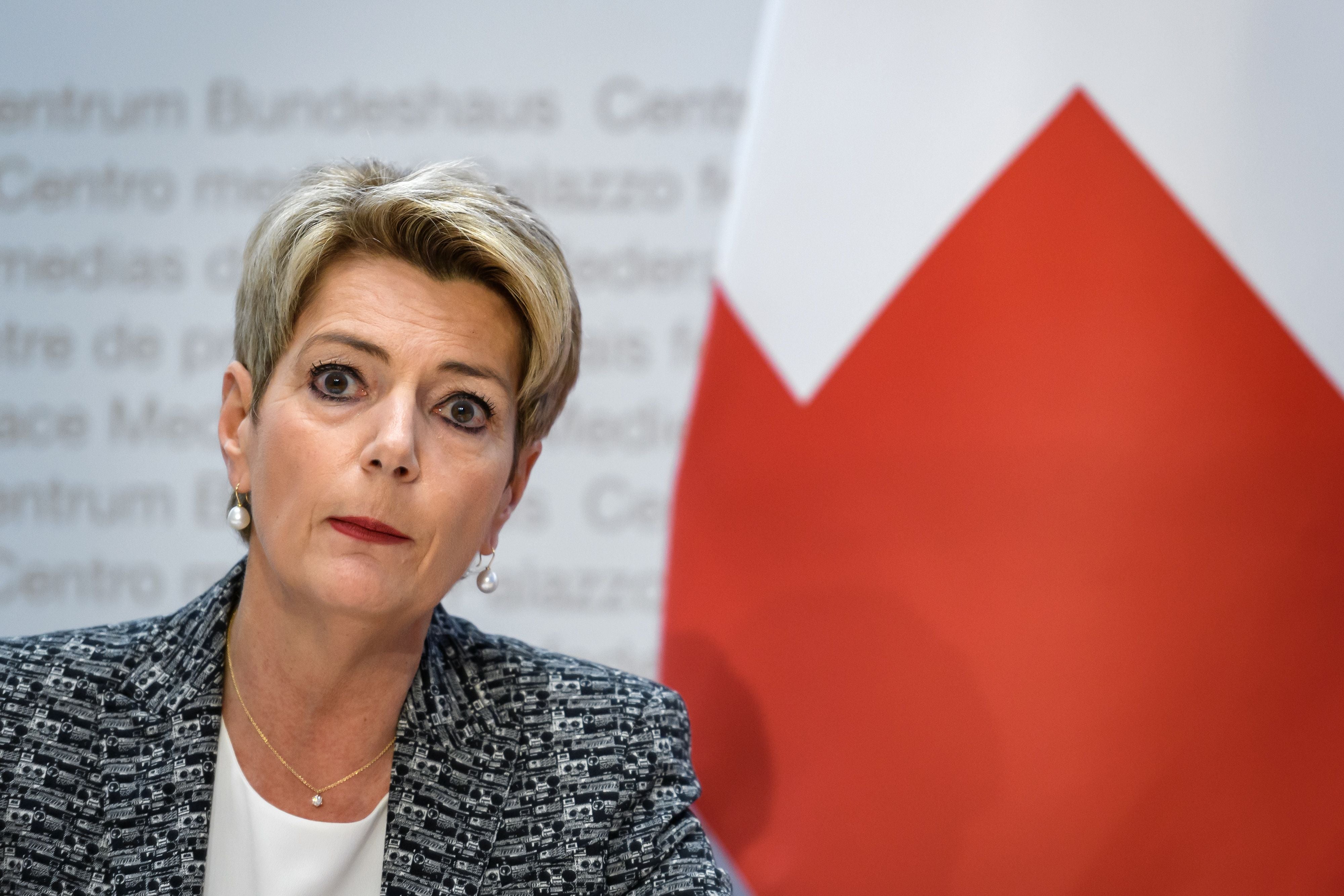Switzerland to clean up its dirty money? I’ll believe that when I see it
The Swiss finance minister announced a clampdown on money laundering and other nefarious financial behaviour, writes Chris Blackhurst. Which is remarkable – because they’re so good at it


Well, well, that’s a turn-up. “Swiss unveil dirty money clampdown to repair image” was the splash headline.
Apparently, the small, mountainous country is paving the way to oblige the “ultimate beneficial owners” of trusts and companies to reveal themselves.
“A robust system to protect against financial crime is essential to the reputation and lasting success of an internationally significant, secure and forward-looking financial centre,” said Karin Keller-Sutter, the Swiss finance minister.
That much is certainly true, but that’s where pretty much the rest of the world has been for a while. Indeed, Switzerland is the only European country not to have a meaningful register of ownership.
In the drive for greater transparency and concerted attempts to crack down on the financing of international terrorism, Switzerland has stood alone. It’s hardly a surprise: this is a nation that has grown astonishingly prosperous from selling secrecy. Not just recently but going back to the 1700s.
Keeping shtum is in the Swiss DNA – ingrained in the make-up. For the avoidance of doubt, it’s enshrined in law: disclosing client information is not only a sackable offence but a criminal one, punishable with up to five years in jail, even if it is in the public interest. There have been four recent whistleblower cases, and on each occasion the leaker has been pursued through the courts and punished.
Swiss bankers are immune from foreign prosecution and extradition. They follow a similar code of omerta as priests and doctors.
According to the Swiss Bankers Association, when they last counted in 2018, its members looked after $6.5tn (£5.1tn) of foreign assets, or 25 per cent of all the world’s cross-border assets. This, in a nation with a population of 8.7 million.
Much of that colossal tally was held in numbered accounts, where the identity of the account holder is known only to the bank. Often, the customer is given a code name to add another layer of confidentiality. These are only the accounts – Swiss banks retain tightly-guarded vaults and underground bunkers that store gold bars and other deposits.
In the roll call of dubious offshore havens, Switzerland is the undisputed number one.
It’s more than a mere recipient of other people’s riches, however. So fiendishly expert are the Swiss at hiding wealth from tax authorities, law enforcers, creditors, asset recovery specialists – anyone with a legitimate reason for finding the true owner of something – that they’ve turned the practice into a major export earner. Swiss firms provide expertise in setting up trusts and shelters worldwide, in other offshore centres.
Down the ages, corrupt rulers, dictators, mobsters and tax dodgers have all availed themselves of Switzerland’s peculiar genius. During the Second World War, resolutely neutral Switzerland provided a haven for money and assets belonging to wealthy Jews, but at the same time it gave sanctuary to gold plundered by the Nazis.
Among the current crop of clients are organised crime bosses and oligarchs. Since Russia’s invasion of Ukraine, members of the latter and their families and associates might be subject to sanctions, including in theory in Switzerland, but there they’ve been able to exploit loopholes and continue banking. They are said to include those in Vladimir Putin’s closest circle and even the Russian president himself.
Bern likes to claim it properly polices money flows within its borders. So angry were the G7 leaders about the time-honoured ability to turn a blind eye that in April, their ambassadors in Bern sent a joint letter criticising the Swiss government and accusing the country’s lawyers of deliberately setting out to evade their embargoes.
The new register of beneficial owners of all companies and trusts, set up in the country, will not be available to the public. But regulators, governments and police, and accredited banks and lawyers will be able to gain access.
Meanwhile, Swiss lawyers, accountants and others who specialise in financial obfuscation will be obliged to conduct due diligence on their clients. They will be required to keep records of the checks and where they come across suspected money laundering, they must report it to the authorities.
On its face this is a remarkable development. If it’s followed through, the amount of information being sent across to the officials will be a veritable deluge. They won’t be able to cope.
Which is why it’s difficult to conceive it ever occurring – not properly, as billed, anyway. Switzerland operates a consensual political system – everyone must agree or else there is little prospect of it ever becoming enshrined in law.
So, all the political parties, the local, 26 cantonal governments and civil groups – including the various banking and lawyers’ associations – must buy into the plan. Following Keller-Sutter’s announcement, that consultation is now beginning and is due to last three months.
It will be interesting to see what shape the reforms are in once that process has been concluded. And more tellingly, how they are applied in practice. If culture and history are any guides, do not hold your breath.
Join our commenting forum
Join thought-provoking conversations, follow other Independent readers and see their replies
Comments



Bookmark popover
Removed from bookmarks